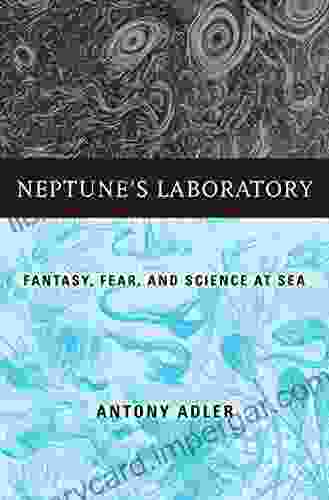Ivan The Terrible: The Reign of Terror and Military Dominance

Ivan Vasilyevich, known as Ivan the Terrible, was the Grand Prince of Moscow from 1533 to 1547 and the first Tsar of Russia from 1547 to 1584. During his reign, he expanded the Russian Empire, conquered new territories, and established a centralized state. He was also known for his brutality and tyranny, which earned him the nickname 'the Terrible.'
Early Life and Rise to Power
Ivan was born in Moscow on August 25, 1530, to Vasily III, the Grand Prince of Moscow, and Elena Glinskaya. His father died when Ivan was three years old, and his mother became regent. Elena was a strong and ambitious woman, and she ruled Russia with a firm hand. However, she died suddenly in 1538, when Ivan was eight years old.
4.6 out of 5
| Language | : | English |
| File size | : | 46051 KB |
| Text-to-Speech | : | Enabled |
| Screen Reader | : | Supported |
| Enhanced typesetting | : | Enabled |
| Word Wise | : | Enabled |
| Print length | : | 477 pages |
| Lending | : | Enabled |
After his mother's death, Ivan was placed under the care of a group of boyars, or noblemen. The boyars were corrupt and self-serving, and they fought among themselves for power. Ivan grew up in an atmosphere of violence and instability, and he developed a deep distrust of others.
In 1547, at the age of 17, Ivan was crowned Tsar of Russia. He was the first ruler to use the title of Tsar, which means "Caesar." Ivan was determined to strengthen the Russian state and expand its bFree Downloads. He began his reign by consolidating his power and eliminating his rivals. He had several of his uncles and cousins executed, and he imprisoned or exiled many of the boyars who had opposed him.
Military Campaigns
Ivan the Terrible was a brilliant military strategist and commander. He led the Russian army to a number of victories, and he expanded the Russian Empire by more than doubling its size.
In 1552, Ivan began a series of campaigns against the Kazan Khanate, a powerful Muslim state that controlled the Volga River region. After several years of fighting, Ivan's army finally captured Kazan in 1552. The conquest of Kazan gave Russia control of the Volga River and opened up new trade routes to the East.
In 1556, Ivan turned his attention to the Astrakhan Khanate, another powerful Muslim state that controlled the lower Volga River. After a brief campaign, Ivan's army captured Astrakhan in 1556. The conquest of Astrakhan gave Russia control of the entire Volga River and secured its access to the Caspian Sea.
In 1558, Ivan began a series of campaigns against the Crimean Khanate, a powerful Muslim state that controlled the Crimean Peninsula. The Crimean Khanate was a major threat to Russia, as it raided Russian territory and captured Russian slaves. Ivan's army defeated the Crimean Khanate in a series of battles, and he forced the Khan to sign a peace treaty that recognized Russian sovereignty over the Astrakhan Khanate.
In 1560, Ivan began a series of campaigns against the Livonian Confederation, a loose alliance of German states that controlled the Baltic Sea region. The Livonian Confederation was a major obstacle to Russian expansion, as it blocked Russia's access to the Baltic Sea. Ivan's army fought a series of bloody battles against the Livonian Confederation, and he eventually captured several important fortresses. However, the war dragged on for several years, and Ivan was unable to achieve a decisive victory.
Domestic Policies
In addition to his military successes, Ivan the Terrible also implemented a number of domestic reforms. He established a new legal code, the Sudebnik, which standardized the laws of Russia. He also created a new system of local government, the zemstvo, which gave local communities more autonomy.
Ivan also promoted the development of Russian culture. He founded the first printing press in Russia, and he commissioned the creation of a new Russian chronicle, the Nikon Chronicle. He also encouraged the growth of Russian art and architecture.
The Oprichnina
In 1565, Ivan the Terrible established the oprichnina, a special police force that was responsible for maintaining Free Download and suppressing dissent. The oprichniki, as the members of the oprichnina were known, were given special privileges and powers. They were allowed to arrest, torture, and execute anyone they suspected of treason.
The oprichnina was a brutal and oppressive force. The oprichniki terrorized the Russian people, and they were responsible for the deaths of thousands of innocent people. The oprichnina also caused widespread economic and social disruption.
The oprichnina was eventually disbanded in 1572, after it had outlived its usefulness. However, the damage that it had done to Russia was long-lasting. The oprichnina had created a climate of fear and suspicion, and it had destroyed the trust between the government and the people.
Later Years and Death
In his later years, Ivan the Terrible became increasingly paranoid and unstable. He suffered from bouts of depression and ill health, and he was haunted by the guilt of the atrocities that he had committed.
In 1581, Ivan's eldest son, Ivan Ivanovich, died under mysterious circumstances. Ivan was devastated by his son's death, and he never fully recovered. He died on March 18, 1584, at the age of 53.
Ivan the Terrible was a complex and controversial figure. He was a brilliant military strategist and a ruthless tyrant. He expanded the Russian Empire and strengthened the Russian state, but he also caused widespread suffering and death. His legacy is still debated today, but there is no doubt that he was one of the most important figures in Russian history.
Ivan the Terrible was a complex and contradictory figure. He was a brilliant military strategist and a ruthless tyrant. He expanded the Russian Empire and strengthened the Russian state, but he also caused widespread suffering and death. His legacy is still debated today, but there is no doubt that he was one of the most important figures in Russian history.
4.6 out of 5
| Language | : | English |
| File size | : | 46051 KB |
| Text-to-Speech | : | Enabled |
| Screen Reader | : | Supported |
| Enhanced typesetting | : | Enabled |
| Word Wise | : | Enabled |
| Print length | : | 477 pages |
| Lending | : | Enabled |
Do you want to contribute by writing guest posts on this blog?
Please contact us and send us a resume of previous articles that you have written.
 Book
Book Novel
Novel Page
Page Chapter
Chapter Text
Text Story
Story Genre
Genre Reader
Reader Library
Library Paperback
Paperback E-book
E-book Magazine
Magazine Newspaper
Newspaper Paragraph
Paragraph Sentence
Sentence Bookmark
Bookmark Shelf
Shelf Glossary
Glossary Bibliography
Bibliography Foreword
Foreword Preface
Preface Synopsis
Synopsis Annotation
Annotation Footnote
Footnote Manuscript
Manuscript Scroll
Scroll Codex
Codex Tome
Tome Bestseller
Bestseller Classics
Classics Library card
Library card Narrative
Narrative Biography
Biography Autobiography
Autobiography Memoir
Memoir Reference
Reference Encyclopedia
Encyclopedia Alda Benjamen
Alda Benjamen Russell Lewis
Russell Lewis Francis A Schaeffer
Francis A Schaeffer Allen E Rizzi
Allen E Rizzi Alec Karakatsanis
Alec Karakatsanis Dale Okorodudu
Dale Okorodudu Alison Baughman
Alison Baughman Jason Gibbs
Jason Gibbs Hong Shen
Hong Shen Alexandra L Shuford
Alexandra L Shuford Allison Maslan
Allison Maslan Algernon Blackwood
Algernon Blackwood Shae Mccrystal
Shae Mccrystal Alejandro De La Fuente
Alejandro De La Fuente Drew Boyd
Drew Boyd Alexander Culafi
Alexander Culafi Alan Wolfelt
Alan Wolfelt Allan Mallinson
Allan Mallinson Alesa Teague
Alesa Teague Alexander Welsh
Alexander Welsh
Light bulbAdvertise smarter! Our strategic ad space ensures maximum exposure. Reserve your spot today!

 Thomas PowellDive into Uncharted Depths: Fantasy, Fear, and Science Unveil the Mysteries...
Thomas PowellDive into Uncharted Depths: Fantasy, Fear, and Science Unveil the Mysteries...
 E.E. CummingsAnglo-Native Treaties and the Law of Nations: A Journey Through History and...
E.E. CummingsAnglo-Native Treaties and the Law of Nations: A Journey Through History and... Enrique BlairFollow ·12.7k
Enrique BlairFollow ·12.7k Camden MitchellFollow ·8k
Camden MitchellFollow ·8k W. Somerset MaughamFollow ·10.7k
W. Somerset MaughamFollow ·10.7k Chuck MitchellFollow ·11k
Chuck MitchellFollow ·11k Brett SimmonsFollow ·17k
Brett SimmonsFollow ·17k Nikolai GogolFollow ·5.3k
Nikolai GogolFollow ·5.3k Jack LondonFollow ·10.5k
Jack LondonFollow ·10.5k Clark CampbellFollow ·12k
Clark CampbellFollow ·12k

 Ignacio Hayes
Ignacio HayesUnveiling the Secret Spitfires: Britain's Hidden Civilian...
: The Untold Story of Britain's...

 Scott Parker
Scott ParkerLiving With Schizophrenia: A Father and Son's Journey
Schizophrenia is a serious...

 Ted Simmons
Ted Simmons"From Sign Up to Pass Out": The Shocking and Immersive...
Step into the...

 John Keats
John KeatsThe Development of Biographies and Philosophical...
The Alluring...

 Dan Brown
Dan BrownCapture Your Dream Wedding with Digital Wedding...
Your wedding day is...
4.6 out of 5
| Language | : | English |
| File size | : | 46051 KB |
| Text-to-Speech | : | Enabled |
| Screen Reader | : | Supported |
| Enhanced typesetting | : | Enabled |
| Word Wise | : | Enabled |
| Print length | : | 477 pages |
| Lending | : | Enabled |









